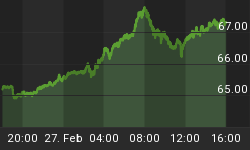Findfacts is showing that Oil demand falls in Developed World for first time in 20 years.
Data issued by the Paris-based International Energy Agency (IEA), the energy watchdog of the industrialized countries including Ireland, show oil consumption in the 30 member countries of the Organization for Economic Cooperation and Development fell 0.6% in 2006. While the fall appears small, it marks the first annual drop in more than 20 years among the OECD countries, which use close to 60% of the 84.4 million barrels of oil used globally each day.
The fall in oil use by the industrialized world is a sign that the reactions to higher oil prices by businesses and consumers from the US to Germany to Japan may be adding up to a cycle-turning downdraft in demand. The resulting shift in global cash flows could mean a big boost for oil consumers' economies at the expense of producers and exporters. Other signals, both economic and psychological, have been popping up for some time: Demand for gas-guzzling sport-utility vehicles has been falling, while investment in and sales of alternative fuels such as ethanol are booming. Even the Bush administration is vowing to reduce America's dependence on crude.
Crude oil's fall to $50 a barrel may push US gasoline pump prices below $2 a gallon for the first time in more than two years, based on historical price moves. The last time the average price for regular gasoline was below $2 was in March 2005, according to the AAA, the largest U.S. motorist organization. Prices are already below $2 in some parts of the country, including Oklahoma City and Kansas City, Missouri.
Here are some charts to consider from the Energy Information Administration.
World Oil Demand

Oil Consumption

The above charts show that for now, total world oil demand simply is not expanding as fast as some lead us to believe. However, the rate of growth in China and Other Asia is substantial.
Long Term Trendline on Crude

Short term a bounce in crude off the 200MA is likely to happen. Seasonally a bounce might also be expected here, especially if the unusually warm weather turns harsh. Intermediate term we have a recession to deal with. Long term we also have to deal with peak oil. There are also tremendous geopolitical factors. Will Bush order an attack on Iran? Will Israel attack Iran? Will Iran be able to block the Strait of Hormuz effectively shutting down all Mideast oil? Just how stable is Saudi Arabia? The only one of those questions that can easily be answered is that Iran is unlikely to be able to block the Strait of Hormuz, but that does not imply that the world will be able to do without oil from Iran itself.
What we do know for sure is that oil demand fell for the first time in 20 years and that can not be signaling much of anything other than a global slowdown. Price is set at the margin and demand at the margin has declined. What we certainly do no know is most everything else including how much geopolitical tension is priced in or out.
Long term I believe in peak oil.
Long term I also believe the market (if left alone) will find a nice solution to peak oil.
One of the problems right now is the inability of those in power to let the market decide what to do. Instead we have seen absurd subsidies for ethanol, a stupid war in Iraq, a willingness to attack Iran, and a whole host of other nonsense outside the US including Chavez nationalizing oil in Venezuela. Furthermore we do not know the full extent of how much hedge funds have driven up the price of oil based on the above knowledge, nor can we really trust any source of information about oil from Saudi Arabia or the Mideast in general.
I was willing to take a stand on copper based on sinking housing demand, but this is way more difficult. I was quite bearish on crude above $75 but near $50 and bouncing off a 200MA the call is much more difficult.
For those that insist on a call, here it is. I expect a short term bounce off the 200MA then a fall to the $40-$50 range for a long basing action, followed by a blast higher. I reserve the right to immediately change my opinion without notice based on current events.
Note: This post is an opinion only and can not be construed as investment advice of any kind. Please consult your investment adviser before taking action on this or any other post you see here or elsewhere.















